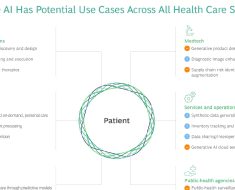Machine Learning Struggles to Identify Major Depressive Disorder from Brain Scans: A Study

A recent publication in Scientific Reports delves into the potential of machine learning (ML) to categorize Major Depressive Disorder (MDD) using structural brain images. MDD, having a lifetime prevalence of 14% and a considerable societal impact, presents obstacles in diagnosis and treatment, mainly due to its reliance on self-reported symptoms. The study has focused on enhancing diagnosis by applying ML to cortical and subcortical measures from MRI scans of MDD patients and healthy controls within the ENIGMA MDD Working Group.
An Extensive Analysis
The study incorporated data from 2,288 MDD patients and 3,077 healthy controls. The data was divided by age and gender, or by the site of MRI acquisition for model training and testing. The researchers utilized various ML models such as support vector machines and logistic regression. However, the findings revealed that the balanced accuracy of the models was moderate, clocking around 62% when split by age/sex but only 51% when divided by site.
Data Harmonization and Its Impact
Data harmonization, a process aimed at reducing disparities due to MRI acquisition procedures, resulted in a balanced accuracy of up to 52%. These findings indicate that commonly used ML algorithms may not reliably distinguish MDD patients from healthy controls based solely on brain structural data. The performance did not significantly improve even after stratifying the dataset by clinical and demographic parameters.
The Path Forward
This study’s results underscore the need for further exploration and research, possibly involving more sophisticated algorithms. While ML has shown potential in various healthcare applications, its effectiveness in diagnosing MDD based on brain structural data appears to be limited. However, these findings do not discount the value of machine learning in mental health research. They merely highlight the complexities involved and the need for more refined methodologies and algorithms in the future.



